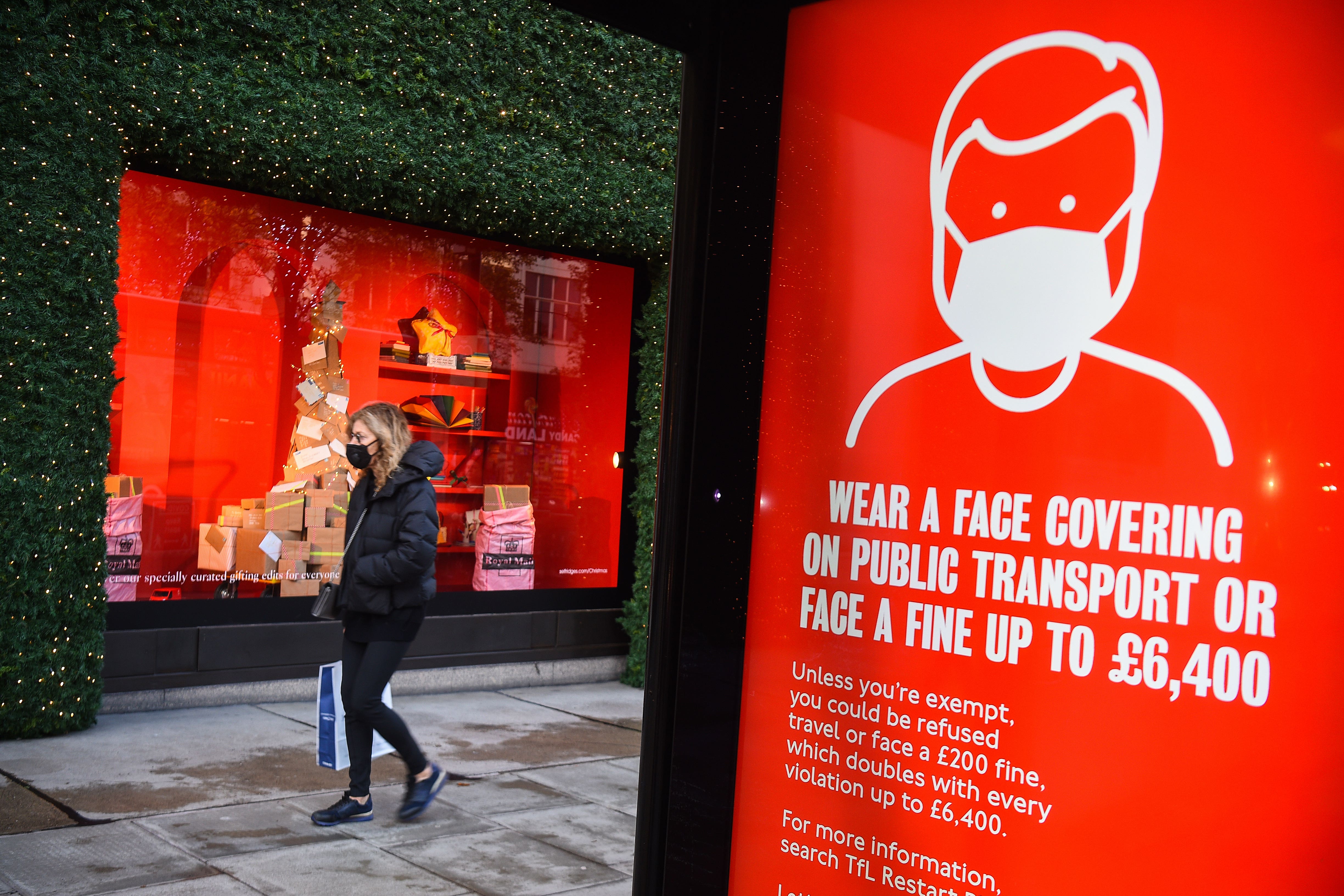Virus detection method paves way for quicker pandemic response – study
Isolating infected people and contact tracing could become faster, slowing down the spread of deadly illnesses.

Your support helps us to tell the story
From reproductive rights to climate change to Big Tech, The Independent is on the ground when the story is developing. Whether it's investigating the financials of Elon Musk's pro-Trump PAC or producing our latest documentary, 'The A Word', which shines a light on the American women fighting for reproductive rights, we know how important it is to parse out the facts from the messaging.
At such a critical moment in US history, we need reporters on the ground. Your donation allows us to keep sending journalists to speak to both sides of the story.
The Independent is trusted by Americans across the entire political spectrum. And unlike many other quality news outlets, we choose not to lock Americans out of our reporting and analysis with paywalls. We believe quality journalism should be available to everyone, paid for by those who can afford it.
Your support makes all the difference.A quick method for detecting virus variants paves the way for a speedier response to pandemics, scientists have said.
Research backed by the UK Health Security Agency (UKHSA) found that genotyping – a method for picking up tiny genetic differences – can detect variants six days faster than traditional whole genome sequencing.
This means that changes in viruses, as well as new Covid variants, can be analysed more quickly and the information sent to public health professionals on the front line.
As a result, isolating infected people and contact tracing could become much quicker in a pandemic, slowing down the spread of deadly illnesses.
You can scale that capacity ... you don't need large numbers of new laboratories
The new research, published in The Lancet Microbe, analysed data for more than 115,000 cases where Covid variant information was available from both genotyping and whole genome sequencing.
Researchers found that genotyping – which began trialling in UK Covid labs later in the pandemic – gave very accurate results, at well over 90%, and was comparable to whole genome sequencing.
The results also came back in three days, which is six days quicker than the nine days for whole genome sequencing.
Lead researcher Professor Iain Lake, from the University of East Anglia’s School of Environmental Sciences, told the PA news agency the technique could be applied to viruses other than Covid, giving the potential to capture information much more quickly than before.
“This certainly could be used for other viruses,” he said. “Although the (research) paper focuses on Covid, it has wider applicability as a rapid test for variants, which doesn’t involve all the costs and time of genome sequencing.
Genotyping can be applied to finding variants in a wide range of organisms in humans and animals - so it has huge potential for guiding public health decision-making and disease control globally in future
“Once you know what variants you’re looking for (using whole genome sequencing), you can then train genotyping to detect those specific variants a lot more quickly.
“So it allows you to to then respond a lot faster, and potentially more cheaply.
“You can also scale that capacity … you don’t need large numbers of new laboratories.”
He said genotyping enabled a nine-fold increase in the quantity of samples tested for variants, adding: “This meant that variants were detected among many more people.
“Local control measures such as contact tracing could therefore happen more rapidly.
“Genotyping can be applied to finding variants in a wide range of organisms in humans and animals – so it has huge potential for guiding public health decision-making and disease control globally in future.”
Research like this will help us continue to build on our capability in this area and ensure that the UK is as well-prepared as possible to respond quickly to emerging threats to public health in the future
Professor Susan Hopkins, UKHSA’s chief medical adviser, said: “The world-leading genomics expertise that UKHSA and other institutions across the UK were able to draw on throughout the pandemic was critical to the UK response to Covid-19.
“Research like this will help us continue to build on our capability in this area and ensure that the UK is as well-prepared as possible to respond quickly to emerging threats to public health in the future.”
Professor Dame Anna Dominiczak, chief scientist for health in Scotland, said: “Research such as this is really important to ensure that we build upon the huge advances in testing that occurred during Covid to bolster our defences against future pandemic threats.”
– The study also received funding from the National Institute for Health Research Health Protection Research Unit in Emergency Preparedness and Response.